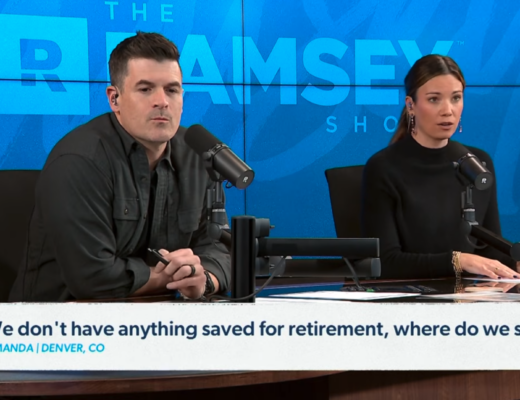As someone who’s navigated the complexities of personal finance and debt elimination, I’ve witnessed firsthand how mixing friendship with finances can create uncomfortable situations. Recently, I encountered a situation that perfectly illustrates why borrowing money from friends is a decision that can haunt you long after the initial transaction.
A caller named Dustin shared his story on The Ramsey Show that resonated deeply with me. He and his wife had accomplished something remarkable – paying off $350,000 in debt over just two and a half years. They were tantalizingly close to complete financial freedom, with just one obstacle remaining: a vacation home with a $500,000 loan balance.
Here’s where it gets interesting – and complicated. Dustin had purchased this vacation home before his marriage, financing it through a friend who acted as the bank. Now, with the means to pay off the loan through the sale of their primary residence, Dustin faced resistance from his friend-turned-lender who preferred to keep the loan active for tax purposes.
The Complex Web of Friend-Based Lending
This situation highlights several critical issues that emerge when mixing friendship with financial transactions:
- The relationship dynamic shifts from friendship to a business partnership
- Personal financial goals can conflict with maintaining social harmony
- Emotional considerations often override sound financial decisions
- The lender may develop a sense of control over the borrower’s financial choices
What struck me most about Dustin’s situation was his reluctance to assert his contractual rights. Despite having the legal ability to pay off the loan, he found himself caught between his wife’s desire for financial freedom and his fear of damaging a friendship.
The Marriage vs. Friendship Dilemma
When it comes to financial decisions, your spouse’s opinion should carry significantly more weight than any friend’s preferences. Dustin’s wife had been his partner in their debt-free journey, working together to eliminate hundreds of thousands in debt. Her desire to complete their financial journey deserved priority over a friend’s tax preferences.
“Your wife’s vote counts 1,000 times more than any of my friends.”
The friend’s position was particularly problematic. He was essentially asking Dustin to maintain debt solely so he could manage his tax liability more favorably. This request prioritized the friend’s tax strategy over Dustin and his wife’s financial freedom goals.
The True Cost of Friend-Based Lending
Let’s break down why this situation is particularly troubling:
- The lender is earning 4% interest on the loan
- He purchased the property 25 years ago, ensuring significant capital gains
- He’s attempting to control the repayment timeline for tax advantages
- The borrower’s financial goals are being subordinated to the lender’s preferences
This scenario perfectly demonstrates why mixing friendship with significant financial transactions is risky. The friend isn’t facing financial hardship – he’s simply trying to optimize his tax situation at the expense of Dustin’s financial freedom.
The Path Forward
Based on my analysis of this situation, there’s only one clear path forward: Dustin needs to prioritize his family’s financial goals and exercise his contractual right to pay off the loan. While maintaining friendships is important, it shouldn’t come at the cost of your family’s financial well-being.
Here’s how to handle similar situations:
- Review the loan agreement thoroughly to understand your rights
- Communicate your intentions clearly and professionally
- Provide reasonable notice of your plans to pay off the debt
- Stand firm in your decision while remaining respectful
- Remember that true friends will support your journey to financial freedom
The most telling aspect of this situation is the friend’s reaction. If a friendship ends because you fulfilled your financial obligations, it reveals something important about the nature of that relationship. A true friend would celebrate your ability to become debt-free, not create obstacles to maintain their own financial advantage.
Frequently Asked Questions
Q: How should someone approach paying off a loan from a friend when there’s resistance?
Start by reviewing the loan agreement to understand your rights. Then, have an honest conversation with your friend, explaining your financial goals and giving them adequate notice of your intentions to pay off the loan. Remember to maintain professionalism throughout the process.
Q: What are the main risks of borrowing money from friends?
The primary risks include changes in the friendship dynamic, potential conflicts over repayment terms, emotional complications in financial decisions, and the possibility of damaging or losing the friendship altogether. The relationship often shifts from friendship to a business arrangement.
Q: Should tax implications for the lender influence the borrower’s decision to pay off a loan?
No, the lender’s tax situation should not dictate your financial decisions. While it’s appropriate to be considerate of timing and provide adequate notice, your family’s financial goals and well-being should take priority over the lender’s tax preferences.
Q: How can someone balance maintaining friendships while making sound financial decisions?
Focus on clear communication, professional behavior, and following the terms of any agreements. Remember that your financial health and family’s well-being should be the priority. A true friend will understand and support your journey toward financial freedom, even if it affects them personally.







